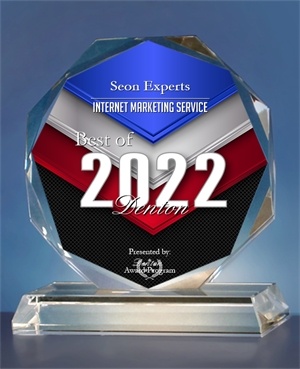In today’s competitive business landscape, leveraging digital marketing services is crucial for any company looking to thrive. Digital marketing encompasses a wide range of strategies and tools designed to help businesses reach their target audience online. From social media marketing and search engine optimization (SEO) to content marketing and pay-per-click (PPC) advertising, these services play a pivotal role in boosting your brand’s online presence and driving traffic to your website.
At SEON Experts, we specialize in creating tailored digital marketing strategies that align with your business goals. Our team of experts works diligently to understand your unique needs and craft solutions that will maximize your return on investment (ROI). By integrating various digital marketing channels, we ensure that your brand not only reaches a broader audience but also engages with them effectively.
Ready to unlock your business potential? Call us today at (817) 213-6090 to learn more about how our comprehensive digital marketing services can elevate your brand.
Benefits of Digital Marketing Services

Embracing digital marketing services offers a multitude of benefits that can significantly enhance your business’s growth and visibility. One of the primary advantages is the ability to reach a global audience. Unlike traditional marketing methods, digital marketing allows you to break geographical barriers and connect with potential customers from around the world.
Another key benefit is cost-effectiveness. Digital marketing campaigns can be tailored to fit any budget, ensuring that businesses of all sizes can compete on a level playing field. Additionally, digital marketing provides measurable results. Tools like Google Analytics and social media insights allow you to track the performance of your campaigns in real-time, making it easier to adjust strategies for optimal outcomes.
Improved customer engagement is also a significant advantage. Through social media platforms, email marketing, and personalized content, you can interact with your audience directly, fostering stronger relationships and building brand loyalty. Furthermore, digital marketing offers enhanced targeting capabilities. By utilizing data and analytics, you can create highly targeted campaigns that reach the right audience at the right time, increasing the likelihood of conversions.
Finally, digital marketing services drive higher conversion rates. With effective strategies such as SEO, PPC, and content marketing, you can attract more qualified leads and guide them through the sales funnel to achieve higher conversion rates. This ultimately translates to increased revenue and business growth.
Key Components of Digital Marketing
Understanding the key components of digital marketing is essential for creating a robust and effective strategy. These components work synergistically to boost your online presence and drive business growth. Let’s explore some of the fundamental elements:
- Search Engine Optimization (SEO): SEO is the practice of optimizing your website to rank higher in search engine results pages (SERPs). This involves keyword research, on-page optimization, and building high-quality backlinks. A well-executed SEO strategy can significantly increase organic traffic to your site.
- Pay-Per-Click (PPC) Advertising: PPC campaigns, such as Google Ads, allow you to display ads to users searching for specific keywords. You only pay when someone clicks on your ad, making it a cost-effective way to drive targeted traffic to your website.
- Content Marketing: High-quality, valuable content is at the heart of any successful digital marketing strategy. This includes blog posts, videos, infographics, and more. Content marketing helps establish your brand as an authority in your industry and engages your audience.
- Social Media Marketing: Leveraging platforms like Facebook, Instagram, LinkedIn, and Twitter to promote your brand can increase visibility and foster community engagement. Social media allows for direct interaction with your audience, making it a powerful tool for building relationships and loyalty.
- Email Marketing: Email remains one of the most effective channels for nurturing leads and driving conversions. Personalized email campaigns can keep your audience informed about your latest offerings, promotions, and company news.
- Analytics and Reporting: Monitoring the performance of your digital marketing efforts is crucial. Tools like Google Analytics provide insights into user behavior, campaign effectiveness, and ROI, enabling you to make data-driven decisions.
By integrating these key components into your digital marketing strategy, you can create a cohesive and effective approach that drives results and helps your business thrive in the digital landscape.
How to Choose the Right Digital Marketing Agency

Selecting the right digital marketing agency is a critical decision that can significantly impact your business’s growth and success. Here are some key factors to consider when making your choice:
- Define Your Goals: Before you start looking for an agency, clearly outline your business goals and what you hope to achieve through digital marketing. This will help you find an agency that aligns with your vision and objectives.
- Evaluate Their Expertise: Look for an agency with a proven track record in your industry. Check their portfolio, case studies, and client testimonials to gauge their experience and success in delivering results similar to what you’re aiming for.
- Service Offerings: Ensure the agency offers a comprehensive range of services, including SEO, PPC, content marketing, social media management, and analytics. A full-service agency can provide a more integrated and cohesive strategy.
- Transparency and Communication: Effective communication is vital for a successful partnership. Choose an agency that is transparent about their processes, provides regular updates, and is readily available to address your concerns and questions.
- Customized Strategies: Avoid agencies that offer one-size-fits-all solutions. Your business is unique, and your digital marketing strategy should be tailored to your specific needs and goals. Look for an agency that takes the time to understand your business and develops a customized plan.
- Budget and ROI: Discuss your budget upfront and ensure the agency can deliver within your financial constraints. Additionally, focus on the potential return on investment (ROI) rather than just the cost, as a higher initial investment may lead to greater long-term gains.
- Technology and Tools: A competent agency should utilize the latest digital marketing tools and technologies to enhance their strategies and deliver better results. Inquire about the tools they use for analytics, automation, and campaign management.
- Cultural Fit: Lastly, consider the agency’s culture and values. A good cultural fit can lead to a more harmonious and productive working relationship, ensuring both parties are aligned and motivated to achieve common goals.
Choosing the right digital marketing agency requires careful consideration and research. By focusing on these factors, you can find a partner that will effectively support your business growth and help you achieve your digital marketing objectives.
Measuring Success in Digital Marketing

Measuring success in digital marketing is essential to understand the effectiveness of your campaigns and strategies. Without proper metrics and analysis, you cannot determine what works and what needs improvement. Here are some key approaches to effectively measure success in digital marketing:
- Set Clear Objectives: Start by defining clear, measurable objectives. Whether it’s increasing website traffic, generating leads, or boosting sales, having specific goals helps in tracking progress and success.
- Utilize Analytics Tools: Tools like Google Analytics, HubSpot, and SEMrush provide valuable insights into your digital marketing performance. These tools can track website traffic, user behavior, conversion rates, and more, offering a comprehensive view of your campaign’s impact.
- Monitor Key Performance Indicators (KPIs): Identify the KPIs that align with your objectives. Common KPIs include click-through rates (CTR), conversion rates, cost per acquisition (CPA), and return on investment (ROI). Regularly monitor these metrics to gauge your campaign’s effectiveness.
- Track Customer Engagement: Engagement metrics such as social media likes, shares, comments, and email open rates can provide insights into how well your content resonates with your audience. High engagement indicates strong audience interest and interaction.
- Analyze Traffic Sources: Understanding where your traffic comes from—organic search, social media, paid ads, or referrals—can help you optimize your marketing efforts. Focus on the most effective channels to maximize your reach and ROI.
- Measure Lead Generation and Conversion: Track how many leads your campaigns generate and the quality of these leads. Additionally, monitor the conversion rate from leads to customers to assess the effectiveness of your sales funnel.
- Use A/B Testing: A/B testing different elements of your campaigns, such as headlines, images, or call-to-actions, can help you identify what works best. This data-driven approach enables you to refine and optimize your strategies for better results.
- Customer Feedback and Surveys: Direct feedback from customers through surveys and reviews can provide qualitative insights into their experiences and satisfaction. Use this feedback to make informed improvements to your digital marketing efforts.
By systematically measuring and analyzing these aspects of your digital marketing, you can continuously optimize your strategies, ensuring that your efforts are driving meaningful results and contributing to your business growth.
Future Trends in Digital Marketing

The landscape of digital marketing is ever-evolving, and staying ahead of the curve is crucial for maintaining a competitive edge. As technology continues to advance, several trends are set to shape the future of digital marketing. Here are some key trends to watch:
- Artificial Intelligence (AI) and Machine Learning: AI and machine learning are transforming how marketers analyze data and personalize customer experiences. From chatbots providing real-time customer support to predictive analytics guiding marketing strategies, AI is making marketing more efficient and effective.
- Voice Search Optimization: With the rise of smart speakers and voice-activated assistants, optimizing content for voice search is becoming increasingly important. Marketers need to focus on natural language queries and conversational keywords to capture voice search traffic.
- Video Marketing: Video content remains a powerful tool for engagement. Live streaming, short-form videos on platforms like TikTok, and interactive video content are gaining traction. Investing in high-quality video production can significantly boost audience engagement and conversion rates.
- Personalization: Consumers expect personalized experiences. Utilizing data to tailor content, recommendations, and offers to individual preferences can enhance customer satisfaction and loyalty. Personalization extends beyond email marketing to encompass website experiences and ad targeting.
- Influencer Marketing: Collaborating with influencers continues to be an effective way to reach niche audiences. Micro-influencers, with smaller but highly engaged followers, are becoming particularly valuable for brands seeking authentic connections.
- Social Commerce: Social media platforms are integrating shopping features, allowing users to purchase products directly from the app. Social commerce is streamlining the buying process and providing new opportunities for brands to drive sales through social media.
- Privacy and Data Protection: With increasing concerns about data privacy, marketers must prioritize transparent data practices and comply with regulations like GDPR and CCPA. Building trust through ethical data usage is essential for long-term success.
- Sustainability and Social Responsibility: Consumers are more conscious of brands’ social and environmental impact. Companies that demonstrate commitment to sustainability and social responsibility can build stronger connections with their audience.
Embracing these trends will not only help you stay relevant but also drive innovation in your digital marketing strategies. At SEON Experts, we are committed to helping you navigate these changes and leverage the latest trends to unlock your business potential. Call us today at (817) 213-6090 to discuss how we can elevate your brand’s online presence and maximize your ROI.






